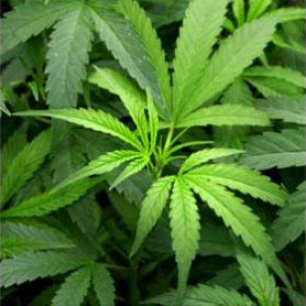Teenagers who occasionally use cannabis may be putting themselves at greater risk of drug problems in later life, according to an Australian study.
Previous research has shown that regular cannabis use during adolescence is associated with drug use and other problems in later life. But little is known about whether occasional cannabis use carries the same risks.
A team of researchers carried out a 10-year study of almost 2000 school students in Victoria, Australia. Their findings are published in the April issue of the British Journal of Psychiatry.
The students were first assessed at the age of 13-14-years-old. They were then followed up four times during their teens, and twice in their early 20s. A third (34 per cent) of the students reported using cannabis in their teens. Of these users, the majority (64 per cent) said they used cannabis occasionally and the rest used it weekly. By the time these students reached early adulthood, 60 per cent said they were still using cannabis. Of these, 77 per cent said they used cannabis occasionally and 23 per cent weekly.
The researchers found that those teenagers who used cannabis occasionally – and who continued occasional use into their early adulthood – were at higher risk of illegal drug use, and alcohol and tobacco dependence, than non-users. They were also at greater risk than those who only began occasional cannabis use after adolescence.
Occasional teenage cannabis users were also less likely to than non-users to have gained post-school qualifications by the age of 24 – but this association was substantially reduced when the researchers controlled for cigarette smoking.
Lead researcher Professor Louisa Degenhardt, of the National Drug and Alcohol Research Centre at the University of New South Wales, said: “Our study found a dose-response relationship, where those students who used cannabis regularly when they were teenagers were most likely to have adverse outcomes in early adulthood. However, even those students who only used cannabis occasionally in their teenage years faced a higher risk of drug problems in adulthood too.
“The reasons for this association between occasional adolescent cannabis use and higher levels of drug use in young adulthood are unclear. Considerable debate is ongoing about the reasons why this is the case. It seems clear that in countries such as Australia, where cannabis use is the norm among young people, even infrequent cannabis use is related to later levels of drug use of all kinds. Whether this is due to learning processes, the influence of social networks or other factors, it is still the case that earluy onset occasional cannabis use is a marker for later drug use and drug problems.”
Professor Degenhardt added: “We must be careful not to exaggerate the harms of occasional cannabis use. However, cannabis use is commonplace among teenagers in many countries. Our findings suggest that efforts to prevent use during adolescence are related to lower levels of drug use later in life.”
Reference: Degenhardt L, Coffey C, Carlin JB, Swift W, Moore E and Patton GC (2010) Outcomes of occasional cannabis use in adolescence: 10-year follow-up study in Victoria, Australia.


